Article
African Women Entrepreneurs in Covid -19 Era
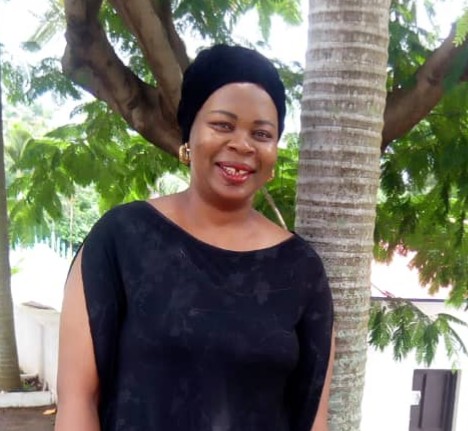
Ebere Agozie
In spite of the giant strides Nigerian women have been making in the world of business, a new reality is staring them – along with the rest of humanity – in the face: COVID-19. adsbygoogle || []).push({}); js">
The prevalence and astonishingly rapid spread of the virus had the whole world literally hyper-ventilating, wondering what had hit it.
At first, there was fear that, given the predominantly rural setting of Africa, and given also the fact that awareness about the pandemic has been slow in catching on, the worst was about to happen.
The expected annihilation may not have happened on the scale feared in Africa, but the presence of the coronavirus in the continent has remained a huge cause for concern.
This is especially so for women whose case is further exacerbated by the very nature of African culture.
Incidentally, many of the recommendations given by health experts as to the required distance between people have of course to do with what makes life pleasurable.
Going by the above observation, one wonders how women will be able to stick to these recommendations, considering the roles they play in the society.
In Africa where there are basically no institutions that take care of the elderly and children with special needs, the challenge of taking care of them is dumped on the door step of women.
Women as care givers do not only take care of the young children at home, feed and bathe them, but also their husbands and their aged ones.
Even as the typical belief or culture of African women revolve around domestic chores, some of these women are also the breadwinners of their homes and so must go out to work to put food on the table.
African women are very enterprising, and this could primarily be put down to the prevalent poverty in the continent and the need to ensure the welfare of their families.
There are those that are involved in subsistence farming, there are others that engage in petty trade and commerce, there is the working class, and there are those that are the corporate world, albeit not many of them in this last category.
There are equally the full-time, stay-at-home housewives, although this class is shrinking by the day as, increasingly, women in Africa perceive the need to get involved in fending for the family.
In this attempt to examine women entrepreneurship in Africa today, we will look closely at the Nigerian situation.
With regard to enterprise, Nigerian women can be spread into four categories.
The first group is the full-time housewives, the stay-at-home housewives. As the name implies, these women simply stay at home to take care of the family, raise the children and generally run the home, while the husbands go out to earn a living.
Most of them are to be found in the northern parts of the country, mainly due to religious constraints since, by reason of their religion, they are not expected to mix very freely with the public, among whom there usually a lot of males.
This set of women is no longer as large as it was in the recent past as the increasingly dire economic conditions faced by most Nigerians make it necessary for more hands to be on deck in providing for the family.
Simply put, staying at home and waiting for the husbands to, as it were, bring home the bacon, is becoming less attractive by the day. It is a luxury that most families can ill afford today.
A second category is the petty traders and the subsistence farmers. This sub group is the most prevalent in our society. They make up the bulk of women in Nigeria and are found in far flung parts.
Nigerian women are so focused, so family-centric, that even when they go to toil in the farm for the family, they would still come home to cook for everyone.
Women farmers may be the predominant group, but one class that seems to be surging recently is those engaged in petty trading.
There is hardly any part of the Nigeria, especially in the lower geographical half of the country, where you do not find women engaging in some form of trading or another.
In most communities it is common to see women displaying their wares just about everywhere you look.
Usually, you see just a few items – confectionaries, food items, soup condiments, and the like. But they know how far revenue from such efforts go in supplementing what the men bring home at the end of the day.
There are also other market settings which are generally dominated by women. These markets vary in size – from just a cluster of a few roughly constructed huts, to extremely large, well-organised and thriving markets that play host to thousands of traders, the majority of them, women.
Enterprising women range from just petty traders, to big time business women whose businesses run into hundreds of millions of naira.
Let us not forget also the working class women that abound in the civil service and in private concerns.
A lot of women have built very successful careers in the public service and they, too, deserve accolades for contributing in steadying the ship of the Nigerian state.
It has actually been proven, over time, that women have shown a rare dedication and conscientiousness in the discharge of their responsibilities, such that are now much sought-after in many organisations.
They have also, by this dint of hard work, succeeded in climbing to the highest reaches of such outfits.
These women, however, are among the few who were privileged to have been highly educated and exposed to opportunities that got them to where they are today, leaving the majority of the non educated petty entrepreneurs to struggle daily to make ends meet.
Some of such women are Hajiya Bola Shagaya, an oil and real estate magnate, Uju Ifejika, and arguably the most prominent of them all, 65 year old Folorunsho Alakija, who found her fame and fortune in the oil and fashion industries.
Nigeria is truly blessed, not only in terms of her abundant natural resources, but also (with her large population) in terms of her huge human resources.
And a truly heart-warming proportion of this is made up of women.
All told however, the problem of Covid-19 has impacted rather heavily on Nigerian women, especially the rural dwellers, and just made their efforts to make ends meet more onerous.
It is therefore unimaginable that social distancing could be practiced here by majority of Nigerian women entrepreneurs.
Some of the women are stuck with men, some of who actually think that the coronavirus is an excuse by the governments to siphon public funds.
These men will always demand for sex from their women, even when they are sick, and of course there are also the factors of culture and religion, and so to them, #Social Distancing is not applicable.
Sometimes culture and religion give the women no chance of objecting and they are therefore forced to succumb to their husband’s advances, which sometimes come in the form of commands.
While #Social Distancing is part of prescribed ways of curbing the spread of #COVID-19, it is nonetheless going to be very difficult for some women trying to go about their lives to stay healthy while still carrying the burden of the people around them.
Most women interviewed lamented that their religions and culture have put much burden on them as women.
This has caused many of them to cast around for excuses on the back of indoctrination, almost amounting to brainwashing.
Hajia Fatima Muhammad, a Civil Servant jokingly asked, ‘how can I observe social distancing when my husband will not keep away from me?’
Her religious and cultural beliefs made her feel that women are not supposed to have a say in such matters.
“If he gets infected and still wants to sleep with me, what do I do since I cannot say ‘no’ to him”?
When asked why she would not deny her husband sex until after the pandemic is over to focus on her business she said: “My religion and culture forbid that’’.
Mfon Effiong, a business woman angrily responded, I am a nursing mother, how do I breastfeed my baby?
“I heard more men are infected than women, and more women survive than men even though we still sleep with them and exchange bodily fluids.
“Besides God has seen the burden we carry as women and has thus given us strong systems. I will not be infected in Jesus name,’’ she declared.
From the foregoing, it is clear that the incompatibility of social distancing and the desire to drive women entrepreneurship in Nigeria, and indeed other African settings, is a quandary to most African societies.
There is no easy way out of this predicament and the real or perceived inequality in the society does not help matters, either.
It is therefore clear that the government organs responsible for public education, have their work cut out for them.
More than anything else, there is an urgent need for a much more aggressive grassroots education to let them know that it is about their health, and that of everyone around them.
Entrepreneurship in Nigeria, especially among women, will be the better for it.
Author Profile

- Prince Abdulrahman Obaje is a Media, Information and Computer Technology Consultant. A quintessential Journalist, online marketer, social media strategist, Mathematician and Computer Scientist is based in Abuja, Nigeria. He is the Founder and the Publisher of The Informavores!. You can reach me on +234 805 939 5252 or send i-witness report directly to me on news@informavores.com.ng.
Latest entries
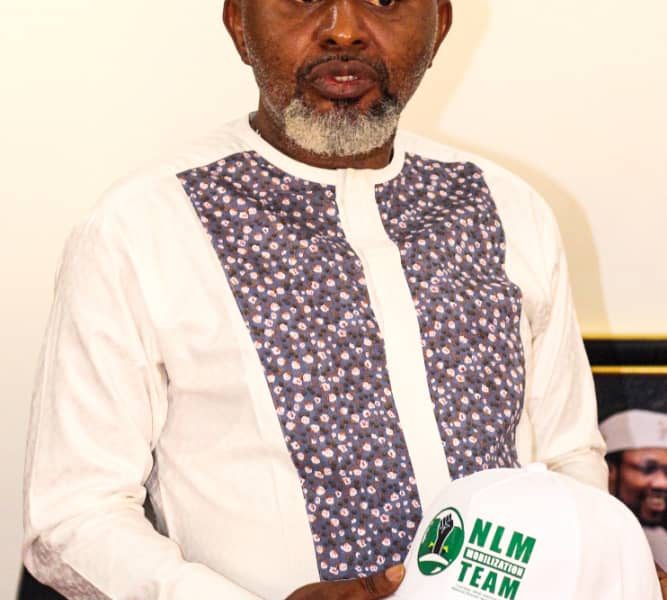 NewsMay 14, 2025NLM Confirms Appointment of the National Director Mobilization and Contact Suleiman Yunisa
NewsMay 14, 2025NLM Confirms Appointment of the National Director Mobilization and Contact Suleiman Yunisa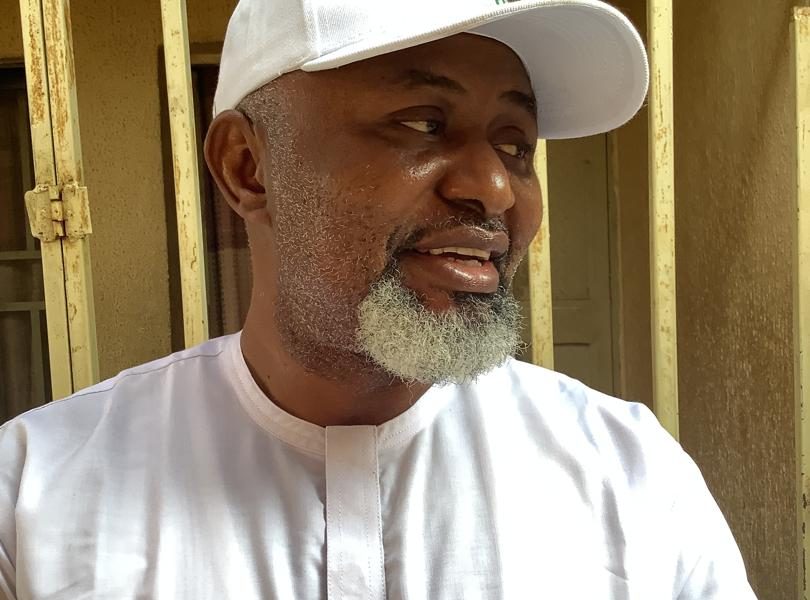 NewsMay 14, 2025NLM-APM-Merger: National Director Mobilization and Contact Says Merger, Calls for Collaborative Synergy.
NewsMay 14, 2025NLM-APM-Merger: National Director Mobilization and Contact Says Merger, Calls for Collaborative Synergy.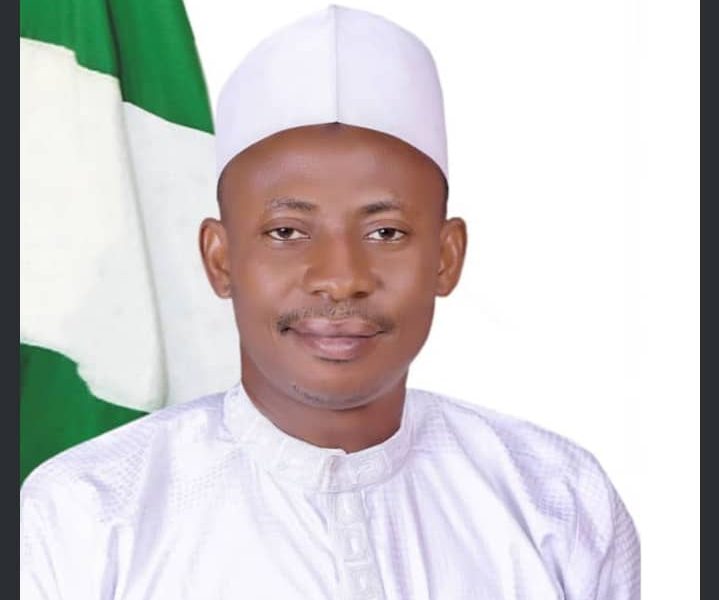 NewsMay 13, 2025Engr. Mohammed Ahovi Yusuf Celebrates Another Year of Selfless Service Under the Visionary Leadership of HE Alhaji Ahmed Usman Ododo
NewsMay 13, 2025Engr. Mohammed Ahovi Yusuf Celebrates Another Year of Selfless Service Under the Visionary Leadership of HE Alhaji Ahmed Usman Ododo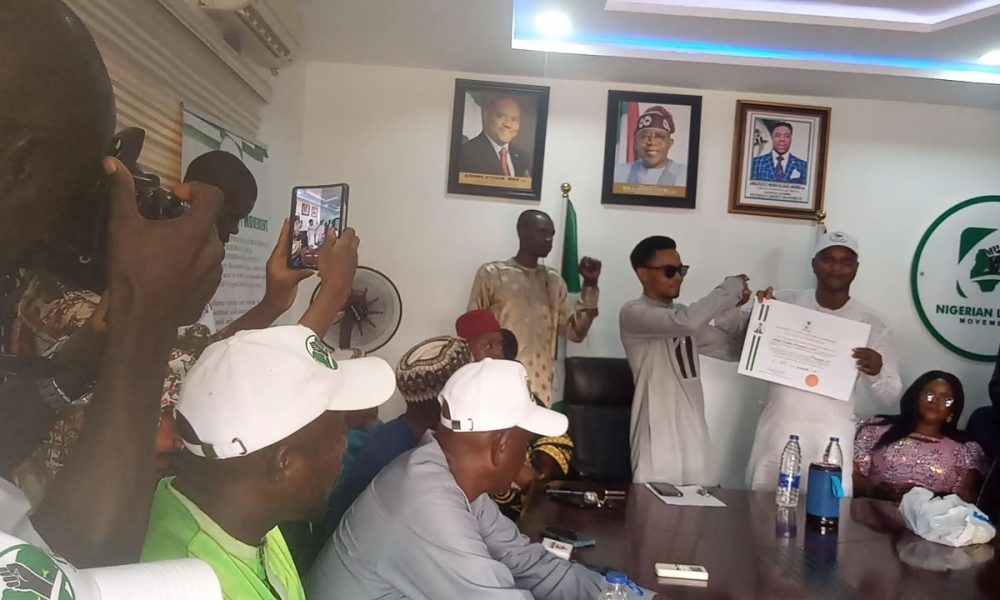 PoliticsMay 13, 2025NLM-APM Merger: The APM’s decision to entrust its legacy to NLM, testament to two undeniably truth – Amb Meshach
PoliticsMay 13, 2025NLM-APM Merger: The APM’s decision to entrust its legacy to NLM, testament to two undeniably truth – Amb Meshach
Article
Tribute to My ‘Mother’ and a Global Trailblazer: Celebrating Ms. Arunma Oteh @ 60
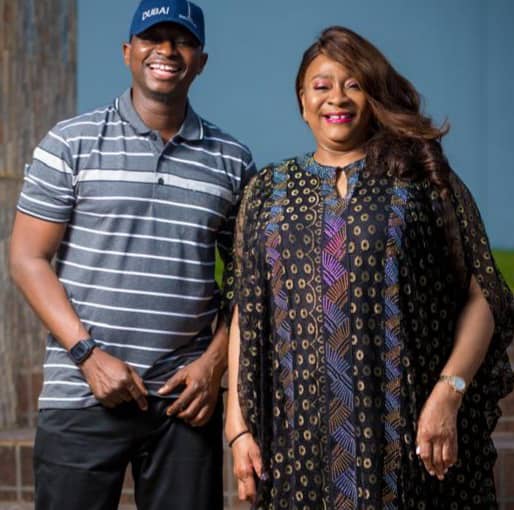
By Alhaji Ibrahim Mohammed Ajia,
As we celebrate the 60th birthday anniversary of my dearest ‘mum’ Ms. Arunma Oteh, I am overwhelmed with a sense of gratitude and admiration for a woman whose life has been a beacon of Hope, Excellence, Resilience and Integrity .
adsbygoogle || []).push({});
Ms. Arunma Oteh’s life is a testament to what can be achieved through hard work, vision, and resilience.
Born in Kano Nigeria, her academic journey began with a first-class honours degree in Computer Science from the University of Nigeria, Nsukka. She then scaled the heights of education, earning an MBA from the prestigious Harvard Business School. These were the stepping stones to a career that would leave indelible marks on Nigeria, Africa, and the world.
Her illustrious career spans decades of service at institutions like the African Development Bank (AfDB), the World Bank, and FSD Africa. At AfDB, she rose through the ranks, assuming pivotal roles, including that of Treasurer and Vice President for Corporate Management. Her expertise and leadership turned challenges into opportunities, paving the way for sustainable financial growth across the continent.
In 2009, Ms. Oteh was entrusted with the monumental task of leading the Securities and Exchange Commission (SEC) as its Director-General. It was a turbulent time for Nigeria’s capital market, but she embraced the challenge with unmatched determination. Her reforms eradicated entrenched abuses, restored investor confidence, and laid a solid foundation for sustainable growth.
Her leadership was not without resistance, as she confronted powerful interests that sought to undermine progress. Yet, with resolute commitment, focus, integrity, and the support of reform-minded leaders, she navigated these challenges, leaving behind a reformed and revitalized capital market.
Ms. Oteh’s appointment as Vice President and Treasurer of the World Bank in 2015 underscored her global stature. Managing a $200 billion debt portfolio and advising Sovereign Wealth Funds, Central Banks, and Pension Funds, she exemplified financial expertise at the highest level. Beyond her technical brilliance, she championed inclusive economic policies that benefited emerging markets and underserved populations.
Her legacy at the World Bank extends beyond numbers; it is a story of transformational leadership and unwavering commitment to empowering others.
While her professional accolades are monumental, what sets Ms. Oteh apart is her personal touch. To me and many others, she has been a mother—providing guidance, encouragement, and unwavering support. Her mentorship has been a compass in my life, teaching me the values of integrity, hard work, and service.
Her ability to nurture talent and inspire excellence is unparalleled. Through her mentorship, she has raised a generation of leaders who are now making meaningful contributions in Nigeria, Africa, and beyond.
Ms. Oteh’s story resonates with people from all walks of life. She embodies the principle that our background does not define our future, but our choices do. Her life is a beacon of hope for those striving to overcome challenges and achieve greatness.
As an Officer of the Order of the Niger (OON), a recipient of the “Distinction In Public Service” award, and one of Forbes’ “Africa’s 50 Most Powerful Women,” Ms. Oteh is celebrated not only for her achievements but also for the values she represents—integrity, resilience, and Excellence in service . Now a leading best seller on Amazon for her new book ‘All hand on deck’
On this special occasion of her 60th birthday, I celebrate Ms. Arunma Oteh for her unquantifiable contributions to Nigeria, Africa, and the global world. I honour her for the lives she has touched, the systems she has transformed, and the legacy she continues to build.
Ms. Oteh, your life is an inspiration, your achievements are a testament to excellence, and your mentorship is a gift to us all. As you celebrate this milestone, I pray for continued blessings, good health, and strength to keep shining your light on the world.
With deepest gratitude and love
Ajia, is the President/CEO, Funab Group of Companies Ltd, a Security expert and a Politician
Author Profile

- Prince Abdulrahman Obaje is a Media, Information and Computer Technology Consultant. A quintessential Journalist, online marketer, social media strategist, Mathematician and Computer Scientist is based in Abuja, Nigeria. He is the Founder and the Publisher of The Informavores!. You can reach me on +234 805 939 5252 or send i-witness report directly to me on news@informavores.com.ng.
Latest entries
 NewsMay 14, 2025NLM Confirms Appointment of the National Director Mobilization and Contact Suleiman Yunisa
NewsMay 14, 2025NLM Confirms Appointment of the National Director Mobilization and Contact Suleiman Yunisa NewsMay 14, 2025NLM-APM-Merger: National Director Mobilization and Contact Says Merger, Calls for Collaborative Synergy.
NewsMay 14, 2025NLM-APM-Merger: National Director Mobilization and Contact Says Merger, Calls for Collaborative Synergy. NewsMay 13, 2025Engr. Mohammed Ahovi Yusuf Celebrates Another Year of Selfless Service Under the Visionary Leadership of HE Alhaji Ahmed Usman Ododo
NewsMay 13, 2025Engr. Mohammed Ahovi Yusuf Celebrates Another Year of Selfless Service Under the Visionary Leadership of HE Alhaji Ahmed Usman Ododo PoliticsMay 13, 2025NLM-APM Merger: The APM’s decision to entrust its legacy to NLM, testament to two undeniably truth – Amb Meshach
PoliticsMay 13, 2025NLM-APM Merger: The APM’s decision to entrust its legacy to NLM, testament to two undeniably truth – Amb Meshach
Article
Odinkalu’s Call for GTBank Boycott: A Fight for Press Freedom and Accountability in Nigeria

By Abdulrahman Aliagan, Abuja
By suppressing press freedom and allegedly using state apparatus to detain journalists, Guaranty Trust Holding Company (GTCO), led by its Managing Director and CEO, Segun Agbaje, finds itself at the center of a growing controversy.
adsbygoogle || []).push({});
com/pagead/js/adsbygoogle.js">
Odinkalu’s condemnation stems from the three-month detention of bloggers Precious Eze, Olawale Olurotimi, Rowland Olonishuwa and Seun Odunlami reportedly orchestrated by GTCO following unfavorable reports about the company. The case highlights a dangerous trend in Nigeria: the gagging of journalists and the erosion of press freedom, fundamental pillars of any democratic society.
GTCO is embroiled in allegations of unethical financial practices, including declaring questionable profits of over N1 trillion, evading tax payments, and managing unauthorized accounts. Instead of addressing these accusations, GTCO allegedly retaliated by targeting journalists who dared to report on the company’s activities. Bloggers like Precious Eze, Olawale Rotimi, Rowland Olonishuwa, and Seun Odunlami were detained on charges of cyberstalking—a broad and often abused provision under Nigeria’s Cybercrime Act.
According to Odinkalu, the bloggers’ detention is a calculated move to create a chilling effect on the media and deter critical reporting on corporate malpractice. “GTBank has procured the police to detain these bloggers since September 2024 on flimsy charges of cyberbullying and conspiracy,” he tweeted. “This is a blatant abuse of power and an attack on press freedom.”
Odinkalu criticized GTCO’s deployment of a high-powered legal team, including three Senior Advocates of Nigeria (SANs), to pursue its case against the bloggers. “On October 23, GTBank showcased a team of 10 lawyers whom it has retained to oppress these poor journalists,” he noted, describing the legal strategy as disproportionate and oppressive.
He further revealed that the police investigation into the case lacked substantive evidence, with the investigating team recommending the bloggers be used as “scapegoats.” Such actions underscore the imbalance of power between wealthy corporations and individual journalists or bloggers, who often lack the resources to defend themselves.
Odinkalu’s call for a boycott of GTBank resonates beyond the immediate case of detained bloggers. It highlights broader issues of accountability, transparency, and press freedom in Nigeria. GTCO’s alleged financial misconduct—including accusations of tax evasion and questionable account practices—remains unaddressed by regulatory authorities like the Central Bank of Nigeria (CBN) and the Economic and Financial Crimes Commission (EFCC).
“This lack of accountability emboldens corporations like GTCO to suppress dissent and intimidate whistleblowers,” Odinkalu remarked. “If GTBank fails to stop this assault on press freedom, citizens should stop banking with it.”
The detention of journalists reflects a troubling trend in Nigeria, where press freedom is increasingly under attack. Journalists face harassment, intimidation, and imprisonment for exposing wrongdoing, creating a hostile environment for investigative reporting.
By targeting journalists, GTCO is not only silencing dissent but also undermining democracy. A free press is essential for holding corporations and governments accountable. Without it, corruption and abuse of power flourish unchecked.
Odinkalu’s call to action has sparked conversations about the role of civil society in defending press freedom. Advocacy groups like the Global Integrity Crusade Network (GICN) have already initiated legal proceedings to compel regulatory bodies to investigate GTCO’s alleged misconduct. However, more collective action is needed to protect journalists and ensure accountability.
The GTCO case exposes critical gaps in Nigeria’s regulatory and legal frameworks. The misuse of cybercrime laws to target journalists underscores the need for legislative reforms that protect press freedom and prevent corporations from exploiting vague legal provisions.
Odinkalu’s call for a boycott is a powerful reminder that citizens have a role to play in demanding accountability. By withdrawing their patronage from institutions that undermine democracy, Nigerians can send a clear message: the suppression of press freedom will not be tolerated.
The ongoing detention of journalists by GTCO is a litmus test for Nigeria’s commitment to democracy and justice. It raises urgent questions about the balance of power between corporations and the press and highlights the need for systemic reforms to safeguard press freedom.
As Odinkalu noted, “GTBank forgets that we are also customers.” The boycott call is not just about GTCO; it is a clarion call for all Nigerians to stand against corporate impunity and defend the principles of transparency, accountability, and freedom of expression that underpin a democratic society.
Aliagan is the Managing Editor of Time Nigeria Magazine, President of the Nigerian Guild of Investigative Journalists (NGIJ) and Public Analyst based in Abuja
Author Profile

- Prince Abdulrahman Obaje is a Media, Information and Computer Technology Consultant. A quintessential Journalist, online marketer, social media strategist, Mathematician and Computer Scientist is based in Abuja, Nigeria. He is the Founder and the Publisher of The Informavores!. You can reach me on +234 805 939 5252 or send i-witness report directly to me on news@informavores.com.ng.
Latest entries
 NewsMay 14, 2025NLM Confirms Appointment of the National Director Mobilization and Contact Suleiman Yunisa
NewsMay 14, 2025NLM Confirms Appointment of the National Director Mobilization and Contact Suleiman Yunisa NewsMay 14, 2025NLM-APM-Merger: National Director Mobilization and Contact Says Merger, Calls for Collaborative Synergy.
NewsMay 14, 2025NLM-APM-Merger: National Director Mobilization and Contact Says Merger, Calls for Collaborative Synergy. NewsMay 13, 2025Engr. Mohammed Ahovi Yusuf Celebrates Another Year of Selfless Service Under the Visionary Leadership of HE Alhaji Ahmed Usman Ododo
NewsMay 13, 2025Engr. Mohammed Ahovi Yusuf Celebrates Another Year of Selfless Service Under the Visionary Leadership of HE Alhaji Ahmed Usman Ododo PoliticsMay 13, 2025NLM-APM Merger: The APM’s decision to entrust its legacy to NLM, testament to two undeniably truth – Amb Meshach
PoliticsMay 13, 2025NLM-APM Merger: The APM’s decision to entrust its legacy to NLM, testament to two undeniably truth – Amb Meshach
Article
In the matter of GTBank’s persecution of poor bloggers
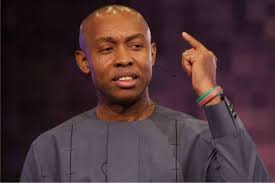
By Chidi Anselm Odinkalu
By the time Muhammadu Buhari ran for a second presidential term in 2019, it seemed clear that the judicial process in many parts of the country had been actively co-opted in the intimidation of civic opponents of the government, both real and imagined.
adsbygoogle || []).push({});
googlesyndication.com/pagead/js/adsbygoogle.js">
Steven was a compelling activist and amplifier of the crisis of human security in Southern Kaduna under former governor, Nasir el-Rufai. For this, el-Rufai arranged the abduction of Steven from his residence in Rivers State on 8 May 2019. From there they bundled him into interminable detention in Kaduna on the imagined crime of criminally defaming Cafra Caino, an acolyte of the governor who was also Chair of the Kajuru Local Government Council.
For this invented crime, el-Rufai had Steven charged before a Magistrate in Kaduna who refused him bail even when the crime was clearly a misdemeanor. Steven renewed his application for bail before the Federal High Court in Kaduna where the presiding judge, Peter Mallong, incredulously ruled that his suit was “an abuse of court process” because the Magistrate had previously refused bail. Turning judicial precedent on its head, Peter Mallong held that the decision of the Magistrate was binding on the Federal High Court.
Gloria Ballason, who argued Steven’s case, was also my lawyer when el-Rufai sought to also abduct me in circumstances that would have been not dis-similar to what he did to Steven. On the eve of the presidential election in 2019, el-Rufai went public with claims of a massacre of scores of Fulanis in Kajuru, a community against whom he appeared to have an implacable beef. The following morning, I publicly rebutted his claims. The security services were pointedly unable to support his claim.
After the 2019 elections, el-Rufai instructed my prosecution before the Magistrates Court in Kaduna on fanciful charges of incitement and injurious falsehood. The case did not even have a charge number. The magistrate called up the case on two successive occasions and, when I did not show up, decided the time was ripe to issue a warrant for my abduction. Contrary to my entitlements under the Nigerian constitution, even bothered to bring the charges to my attention. It seemed as if the entire objective from the beginning was to set me up for abduction.
Informed off-record about the case by sympathetic law enforcement agents subsequently, Gloria Ballason first issued filings objecting to how the court had chosen to proceed. Thereafter, she instituted proceedings before Peter Mallong’s Federal High Court in Kaduna against el-Rufai and the police arising out of these facts alleging breach of my constitutional rights.
One year after the case was instituted, in October 2020, Peter Mallong issued his decision. He claimed that the affidavit in support of my court processes sworn to by a litigation clerk in the law firm of my lawyers, was incompetent because the deponent was someone other than me. It was as if he had never heard of the Fundamental Rights (Enforcement Procedure) Rules which allowed for what the litigation clerk did. As a result, Peter Mallong said, my case was incompetent and his court lacked jurisdiction over it. After holding that he lacked jurisdiction, however, Peter Mallong went on to “dismiss” my case.
The judgment was manifestly crooked on the face of the record. A judge can only dismiss a case that they have had the opportunity to consider but a judge cannot consider a case over which s/he lacks jurisdiction. So, a judge who rules that he or she lacks jurisdiction cannot thereafter decide to dismiss the same case. That is exactly what Peter Mallong did. Having accomplished such crookedness, he then went on to award punitive costs against me.
It was this kind of casuistic and crooked jurisprudence that emboldened el-Rufai and his ilk to routinise the persecution of Nigerian citizens by abduction under cover of law. I was lucky. Steven Kefas was not. Gloria Ballason’s tenacity and an international campaign eventually enabled to Steven to make bail after 162 days in pre-trial detention in Kaduna prison.
According to Steven, while he suffered prolonged pre-trial detention for an imaginary crime framed against him for being a government critic, he witnessed kidnappers caught in the act being released without charges. Steven’s explanation is that: “What the oppressive elites do in Nigeria is that they will hire rogue lawyers to help them draft all manner of petitions to get critics and ‘enemies of the government’ abducted and locked up….”
This appears to be the perfect description for what is happening in an ongoing case involving the prosecution of Precious Eze, Olawale Olurotimi, Rowland Olonishuwa and Seun Odunlami before the Federal High Court in Lagos. The accused are all bloggers who run different platforms as citizen journalists or aggregators.
On 19 September, 2024, Country Hill, a law firm acting on behalf of Guarantee Trust Holding Company (GTCO) and its CEO, Segun Agbaje, wrote a petition in which they complained against the accused for what they called “acts of cyberbullying, criminal extortions (sic) and conducts (sic) likely to cause a breach of public peace” arising reportedly from material published on their blogs about Guarantee Trust Bank (GTBank). Importantly, the complaint omitted any mention of the sums that any of the suspects allegedly extorted or sought to. Subsequent investigation by the police showed clearly that upon the material being brought to their attention by intermediaries, the suspects had voluntarily pulled down the publications complained of.
Acting on this petition, nevertheless, the police promptly arrested and detained Precious Eze and Olawale Olurotimi, both of whom have been held in pre-trial custody since then. By the date you read this, each of them would have been in pre-trial custody for over 91 days. That is more than double the maximum duration of 42 days of pre-trial custody allowed by the Administration of Criminal Justice Act.
It took the police just four days to conclude investigation. Michael Abu, the Chief Superintendent of Police (CSP) who led the investigation into GTBank’s petition, wrote in his report of 23 September 2024 with reference to Precious Eze and Olawale Olurotimi that “these types of people be used as scapegoat” and recommended that they be “charged to court for the offence (sic) of conspiracy, cyberbullying, attempt to extort money through fraudulent means and conduct likely to cause the breach of peace.”
On 14 October, the police re-arraigned them. Ten days later, the amended charges filed against them included six counts of cyberbullying and two each of conspiracy and extortion. To prosecute them, GTBank secured the “fiat” of the Inspector General of Police to instruct a high-powered team of ten lawyers, including three Senior Advocates of Nigeria (SANs). This is a classic example of “oppressive elites” capturing the criminal process for destructive purposes against poor citizens.
Until now, the people who orchestrate these kinds of travesties and their judicial and legal co-travelers have enjoyed earthly impunity. Judges like Peter Mallong made this possible. The one lesson, however, of the Dele Farotimi case is that citizens now have the wherewithal to make these kinds of perversion of the legal and criminal process costly for those who orchestrate them.
In this case of Precious Eze and Olawale Olurotimi, that should be even moreso, given that the travesty is procured at the instance of a commercial and corporate actor. We are both citizens and customers. In this dual capacity we have the muscle to resist the determined conspiracy of politicians and corporates who seek to muzzle and destroy an informed and responsible civics. It is not too late for GTBank to retrace its steps.
A lawyer and a teacher, Odinkalu can be reached at chidi.odinkalu@tufts.edu
Author Profile

- Prince Abdulrahman Obaje is a Media, Information and Computer Technology Consultant. A quintessential Journalist, online marketer, social media strategist, Mathematician and Computer Scientist is based in Abuja, Nigeria. He is the Founder and the Publisher of The Informavores!. You can reach me on +234 805 939 5252 or send i-witness report directly to me on news@informavores.com.ng.
Latest entries
 NewsMay 14, 2025NLM Confirms Appointment of the National Director Mobilization and Contact Suleiman Yunisa
NewsMay 14, 2025NLM Confirms Appointment of the National Director Mobilization and Contact Suleiman Yunisa NewsMay 14, 2025NLM-APM-Merger: National Director Mobilization and Contact Says Merger, Calls for Collaborative Synergy.
NewsMay 14, 2025NLM-APM-Merger: National Director Mobilization and Contact Says Merger, Calls for Collaborative Synergy. NewsMay 13, 2025Engr. Mohammed Ahovi Yusuf Celebrates Another Year of Selfless Service Under the Visionary Leadership of HE Alhaji Ahmed Usman Ododo
NewsMay 13, 2025Engr. Mohammed Ahovi Yusuf Celebrates Another Year of Selfless Service Under the Visionary Leadership of HE Alhaji Ahmed Usman Ododo PoliticsMay 13, 2025NLM-APM Merger: The APM’s decision to entrust its legacy to NLM, testament to two undeniably truth – Amb Meshach
PoliticsMay 13, 2025NLM-APM Merger: The APM’s decision to entrust its legacy to NLM, testament to two undeniably truth – Amb Meshach




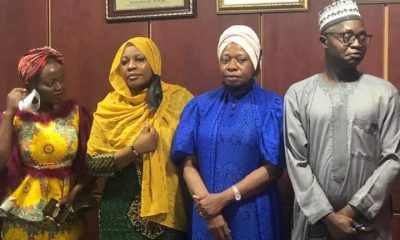

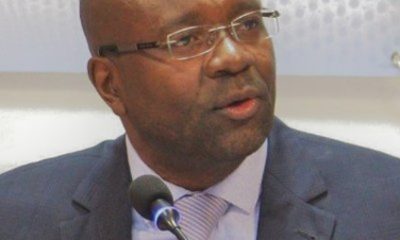

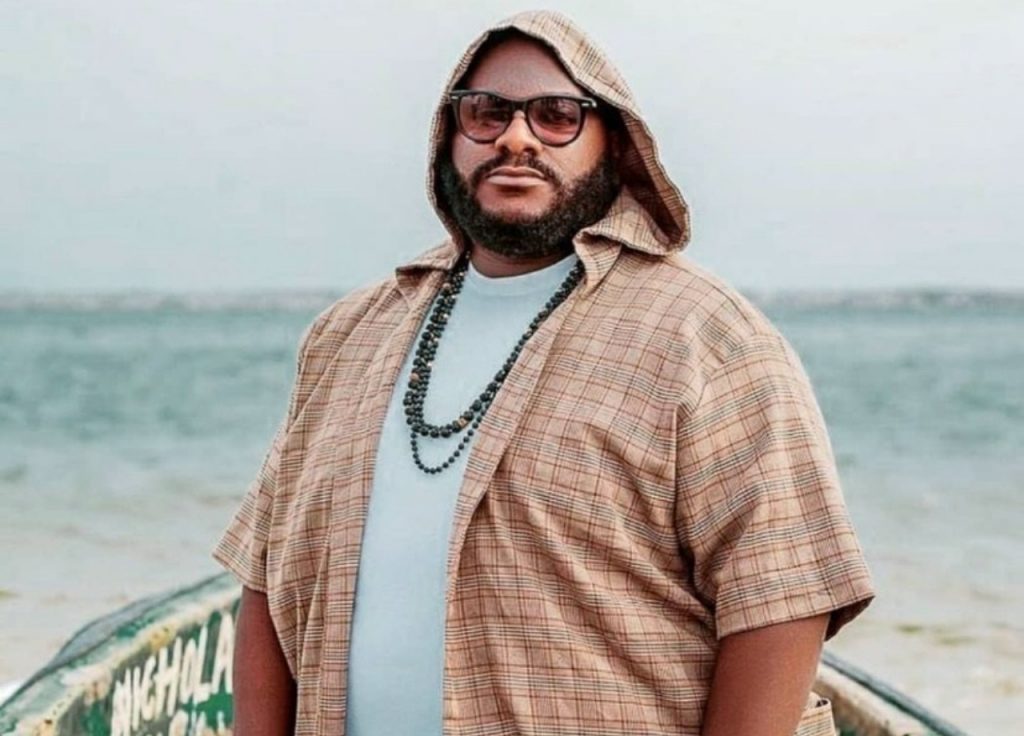


 Arabic
Arabic Chinese (Simplified)
Chinese (Simplified) Dutch
Dutch English
English Filipino
Filipino French
French German
German Hausa
Hausa Igbo
Igbo Italian
Italian Latin
Latin Portuguese
Portuguese Russian
Russian Spanish
Spanish Swedish
Swedish Turkish
Turkish Yoruba
Yoruba Zulu
Zulu